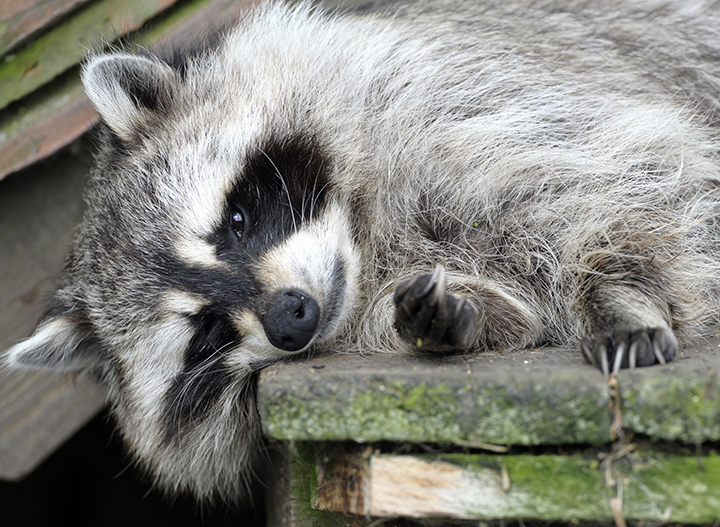TORONTO — A slew of government officials are meeting in Hamilton today to discuss the next steps after the first documented case of rabies in raccoons in a decade left two dogs exposed to the virus after a fight in the back of an animal services van.

The dogs’ lives were spared over the weekend after the city quarantined them Friday as soon as it discovered the raccoon they’d scrapped with tested positive for rabies.
Paula Fancey, who owns the bull mastiffs – Mr. Satan and Lexus – said she cannot afford to board them in isolation for the recommended three months to ensure they are free of rabies.
READ MORE: Hamilton reviewing protocols after rabid raccoon fights 2 dogs in animal control van
“I still think the city should pay for boarding,” Fancey said, adding that she and her daughter received rabies shots over the weekend. “Otherwise I will have to put them down.”
Last Wednesday, an animal services officer picked up the dogs after they escaped their yard and placed them in cages in a van with a sick raccoon.
The raccoon, which was picked up in nearby Stoney Creek, was “very vicious and it was a public safety risk,” according to city spokeswoman Ann Lamanes.
She added that there is a heightened risk of aggressive raccoons in Hamilton.
Somehow the raccoon and one of the dogs got loose from their cages and fought in the van, leading to injuries for both dogs.
The raccoon was later euthanized and tested positive for rabies, the first documented case in raccoons in Ontario since 2006. The unvaccinated dogs were exposed to the virus due to the brawl.
READ MORE: Sick raccoons acting ‘drunk’ being spotted in Vaughan
The city says it’s reviewing its protocols, namely the security of cages in its vehicles and whether wildlife should be transported in the same vans as domestic animals.
Hamilton public health and animal services officials are currently meeting with officials from the province’s Ministry of Natural Resources to figure out a way forward.
Over the weekend, those officials told city council there is no risk to the public, according to Lamanes.
The note indicated the dogs are in “strict quarantine” for the time being.
“Because the dogs were not up-to-date with their rabies vaccines, OMAFRA (Ontario Ministry of Agriculture, Food and Rural Affairs) recommends the animals should be re-vaccinated within seven days of exposure and stay in quarantine for a three-month period,” the note to councillors read.
Ontario instituted rabies control programs more than 20 years ago, and in the summer of 2015 distributed 100,000 baits containing rabies vaccine.
READ MORE: Dog fight uncovers Ontario’s first raccoon rabies case since 2006
The vaccine is aimed at keeping raccoons in the province rabies-free by immunizing the animals in border areas due to the presence of raccoon rabies near the Ontario-New York State border. Provincial officials say the flavoured baits immunize most skunks, foxes and raccoons that eat them.
The city is asking residents to keep their pets’ vaccines up-to-date and to notify them if they see a wild animal, such as a raccoon, acting strangely.
City officials in Toronto, with its large and sprawling raccoon population, say they’ve reviewed their animal control protocols in wake of the Hamilton case.
“We don’t transport sick wildlife with domestic animals,” said Esther Attard, a veterinarian with Toronto Animal Services.
She added the city’s officials are awaiting direction from the Ministry of Health and Long-Term Care.
Generally, Attard said, they don’t test sick raccoons for rabies as it is rare in the province and symptoms are similar to a more common, yet fatal disease: distemper.



Comments